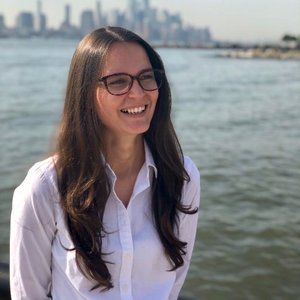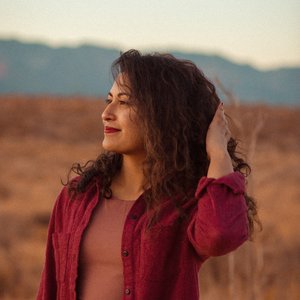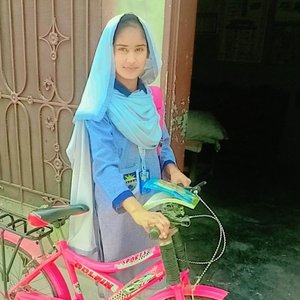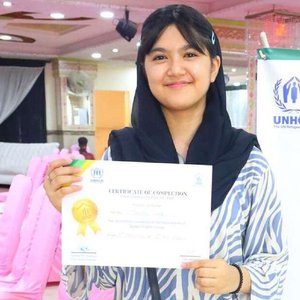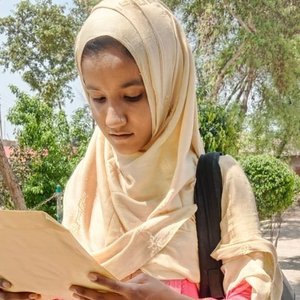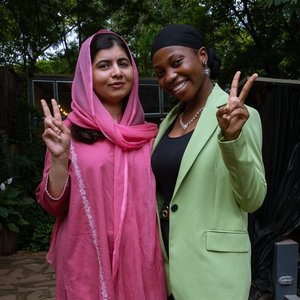Building the next generation of Pakistani women scientists
(Courtesy of Science Fuse and Aleena Baloch)
10-year-old Aleena Baloch shares how the nonprofit Science Fuse is helping girls like her receive quality science education.
At age 10, Aleena Baloch knows exactly what she wants to be when she grows up. “I will be the first lady from Balochistan that will go to space,” the Pakistani student explains. “Or I will discover a new planet. I like Neptune because there everything is made up of diamonds. I want to explore that and photograph this all-natural beauty.”
Aleena loves the prospect of researching space and discovering new aspects of our universe. However in her home city of Khuzdar, some people don’t think girls are capable of succeeding in science.
“It is a very commonly thought in my community that girls cannot get science education because science is a very tough subject for our people,” Aleena shares. “They consider it tough or difficult work only boys can do. Therefore schools or parents both make arrangements or facilitate boys’ science education, meaning boys’ schools have labs and the opportunity to learn science but girls cannot. They think that the boys are smarter than the girls in science.”
These beliefs aren’t limited to Khuzdar. In 2016, the British Council Pakistan held focus groups with Pakistani students across the country to investigate the gender divide in science, technology, engineering and mathematics (STEM) subjects. In every focus group conducted, young Pakistani women expressed concerns over their natural ability in STEM — and suggested that their male counterparts were naturally more gifted at these subjects than women.
Science Fuse, the organisation founded by Malala Fund Education Champion Lalah Rukh Fazal-Ur-Rahman, is working to challenge this mentality and make sure girls like Aleena see science as a field for them. “How girls perceive scientists and science is one issue and one barrier that keeps girls away from science,” Lalah explains. “Because they think that subjects like physics and mathematics are maybe more suited to boys and maybe they're not smart enough to pursue them.”
With Science Fuse, Lalah challenges discriminatory social norms that prevent girls in Pakistan from studying science and develops quality, culturally specific science resources for students ages 3–14 in local languages. “It makes science relevant and meaningful,” Lalah explains of the organisation’s work.
Part of Science Fuse’s mission is exposing girls to notable women in science. “When we ask children or even grown-ups to imagine a scientist, very few of them can think of a woman as a scientist,” shares Lalah.
This was the case for Aleena. Before attending Science Fuse programmes, Aleena didn’t see many career options for women. “I thought that women only can be teachers and doctors,” she explains. “I did not like these careers and the third option was that they only can be social workers. These careers were not interesting for me.” After learning about the contributions of female scientists with Science Fuse, Aleena realised she could follow in their footsteps. “Miss Valentina Tereshkova, Jane Goodall and Marie Curie, their stories taught me that women can make a change and I also can be an astronaut,” she shares.
One of Science Fuse’s most recent projects is a poster series celebrating Pakistani women scientists. “I feel like they can actually envision them, that this is a person on a poster who was once just like me. So perhaps I can grow up to be just like this person,” explains Arooj Khalid, creative project manager at Science Fuse.
(Courtesy of Science Fuse)
Through the Science Stories podcast and video series, Science Fuse teaches girls about incredible women in STEM and provides educators with resources to develop lesson plans around these women. In the “Meet a Scientist” Facebook video series, host Zunera Zenab interviews Pakistani women in STEM, discussing their career paths, how they overcame obstacles and what their jobs look like. “The purpose of Meet a Scientist was to popularise a local scientist, especially in Pakistan, because we can talk about scientists like Jane Goodall and we can talk about these amazing, brilliant scientists. But even then, there will be some disconnect, cultural disconnect,” shares Zunera. “So the goal of meeting scientists was to popularise these local Pakistani scientists and talk about their lives and their work and to celebrate them and to bring them into our popular culture and provide our kids with better role models.”
Zunera loves that the series showcases the many different facets of scientists’ personalities. “What we want girls to take away from this is that you have so many colours and dimensions to you as a woman and you don't have to let go of those identities just because you want to be a serious scientist,” Zunera shares. “So you can be feminine. You can be artistic, because a lot of our scientists, they like to cook, to do makeup, they like to do art. They have these small businesses. And you do not have to let go of those things. If you want to be a scientist, you can do all of these. So I really hope that young girls understand that there's no proper way to be a scientist.”
Exposing girls to role models in STEM is just one aspect of Science Fuse’s work. The organisation also improves the quality of science education for girls in Pakistan. According to Aleena, science education in Khuzdar is hardly ever interactive. “There is no concept of practice,” she says. “We don’t have science labs, IT labs or science books in the library. That is why we don’t understand when we learn more about science topics or things.” This poor quality science education prevents many girls in Pakistan from engaging with the subject and pursuing careers in this field. “Sometimes I get afraid that maybe I cannot make true my dreams in life — which is being an astronaut — because I cannot meet the needs of my learning,” shares Aleena. “For example, I need material for practicals, which are not available in my school. So how can I learn and how can I compete with the world?”
“Sometimes I get afraid that maybe I cannot make true my dreams in life — which is being an astronaut — because I cannot meet the needs of my learning. For example, I need material for practicals, which are not available in my school. So how can I learn and how can I compete with the world?”
Lalah sees this happening in schools across the country. “The majority of children in Pakistan go to either government schools or low-income private schools and in these schools, the quality of science education at these schools is really dismal,” she explains. “Science is considered just something factual that you memorize and cram and then reproduce in exams rather than a tool for exploring the universe, something that builds and nurtures your curiosity.”
With Science Fuse, Lalah is trying to change that so students can engage with science in an engaging, hands-on way. Before the pandemic, Science Fuse put on science shows at schools with dynamic in-person experiments featuring rockets, fire and explosions. When the COVID-19 crisis hit, they transitioned to remote work and developed digital science clubs, reaching a wider audience in the process. Through lessons shared over WhatsApp and Zoom, Science Fuse is bringing at-home experiments to girls across the country, amazing teachers with how much they can do with so few resources. Lalah shares that schools previously thought that they “need lots of money and a huge budget to bring a great quality science education” but that Science Fuse’s digital science clubs showed them how science education can be taught with “everyday, inexpensive materials.”
With Science Fuse, Aleena is not only able to conduct her own science experiments, but she is also helping her peers do the same. “I think my leadership skills are improving,” she shares. “I was a very shy girl but now I am leading my school students in science education.” After learning about climate change with Science Fuse, Aleena is now working with 73 of her classmates to mitigate the effects of climate change in their community.
Seeing young scientists like Aleena reminds Lalah why she created Science Fuse. She hopes that Aleena and every girl involved in the organisation’s work remembers that “you’re a scientist as long as you are someone who wants to find answers to questions and is keen to make discoveries!”
 Read more
Read more







